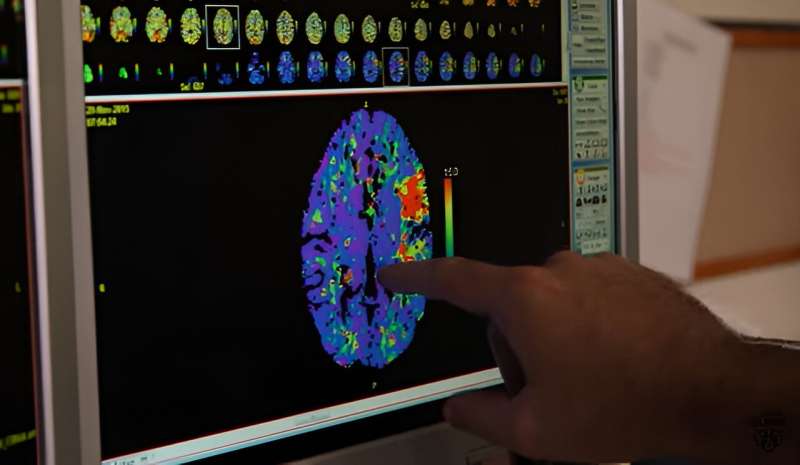This article has been reviewed according to Science X's editorial process and policies. Editors have highlighted the following attributes while ensuring the content's credibility:
fact-checked
trusted source
proofread
Video: What is vascular dementia?

An estimated 55 million people are believed to be living with dementia, according to the World Health Organization. Vascular diseases contribute to approximately 25% of all diagnoses.
When blood vessels are damaged or blocked, it can deprive your brain of vital oxygen and nutrients, which could lead to a condition called vascular dementia.
"Vascular changes in the brain most often damage the axons—or cables—that connect different parts of the brain," says Dr. Stephen English, a Mayo Clinic neurologist. "Therefore, signals take longer to travel, so our brains are not working at full speed."
Dr. English says the signs of vascular dementia include problems with reasoning, planning, judgment, memory and other thought processes. Factors that increase the risk of heart disease and stroke also raise vascular dementia risk.
"High blood pressure, high cholesterol, diabetes, smoking, obesity and sleep apnea—these are the modifiable risk factors that, if untreated, can cause wear and tear on the small blood vessels in the brain over time," says Dr. English.
If you are at risk or show signs of vascular dementia, consult a neurologist.
"We can potentially augment some of these risk factors," says Dr. English. "Medications and lifestyle changes can lower blood pressure and cholesterol; we can treat sleep apnea with certain devices or surgeries; and we can help you stop smoking. These are some things that can reduce the risk of developing vascular dementia."





















